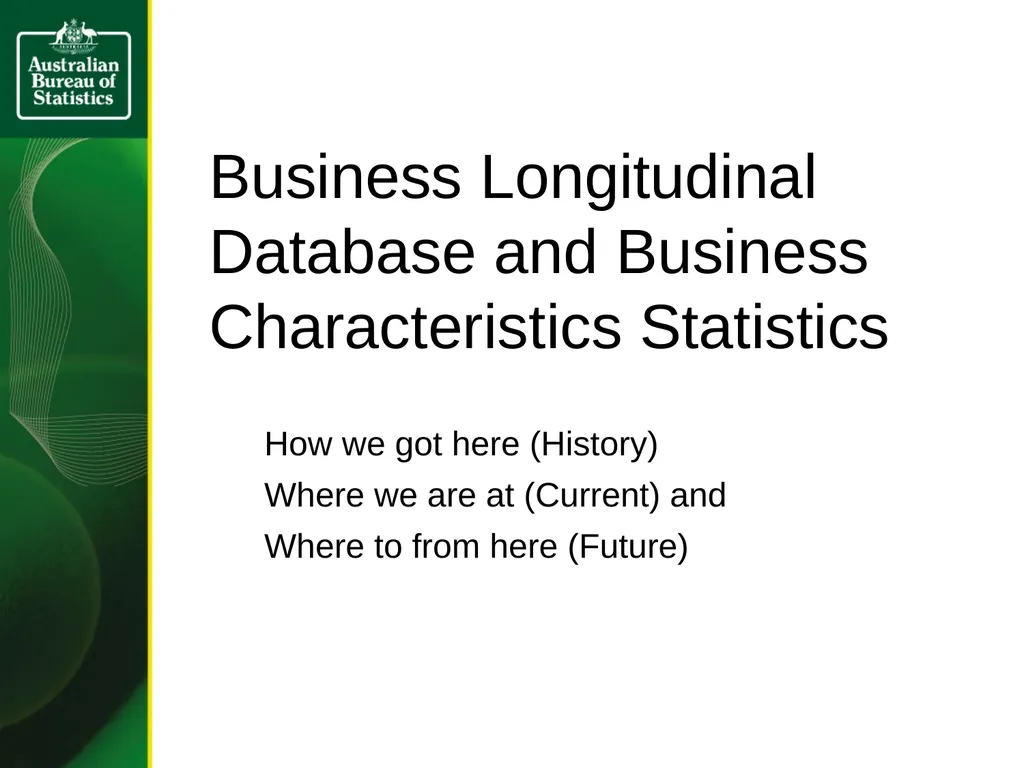
Author : alida-meadow | Published Date : 2025-05-09
Description: Business Longitudinal Database and Business Characteristics Statistics How we got here (History) Where we are at (Current) and Where to from here (Future) Over 10 years ago Business Longitudinal Survey had been conducted in the mid-1990sDownload Presentation The PPT/PDF document "" is the property of its rightful owner. Permission is granted to download and print the materials on this website for personal, non-commercial use only, and to display it on your personal computer provided you do not modify the materials and that you retain all copyright notices contained in the materials. By downloading content from our website, you accept the terms of this agreement.
Here is the link to download the presentation.
"Business Longitudinal Database and Business"The content belongs to its owner. You may download and print it for personal use, without modification, and keep all copyright notices. By downloading, you agree to these terms.













